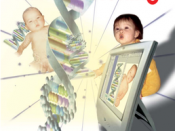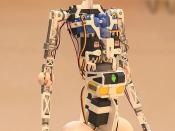The announcement of the successful cloning of the sheep "Dolly" in 1997 was one of the major developments in the history of science. It raised an immediate public outcry in both the political and religious media alike, and within days of the published report President Clinton issued a ban on all federal funding aimed at cloning human beings. All of a sudden, the idea that one could create a perfect replica of another individual seemed less like a scene out of a sci-fi film, and more like a very distinct possibility in the near future. Although the problems associated with cloning have abruptly shifted from a physical and technological sense to a purely moral one, the personal and social benefits that cloning could offer are still very attractive.
From a personal perspective, cloning could present a huge advantage to individuals. For example, say a couple could not get pregnant because the male couldn't produce viable sperm.
Instead of bringing in a third party in the form of donor sperm, it would be possible to extract the DNA from any cell in the male's body, insert it into an egg cell of the female, and insert the egg into the uterus using standard reproductive technologies. This way, a couple could have offspring that were biologically related to them. Cloning could also be used to produce an identical, "delayed" twin which could serve as a source of organs or tissues that might later be needed for transplantation. This would eliminate the dangers of transplant rejection, since the donor would contain the same immune components as the host.
Cloning may also offer huge benefits to society as a whole. It could be used to produce genetically modified cattle carrying human genes for the production of certain proteins to be used as therapeutic drugs.


